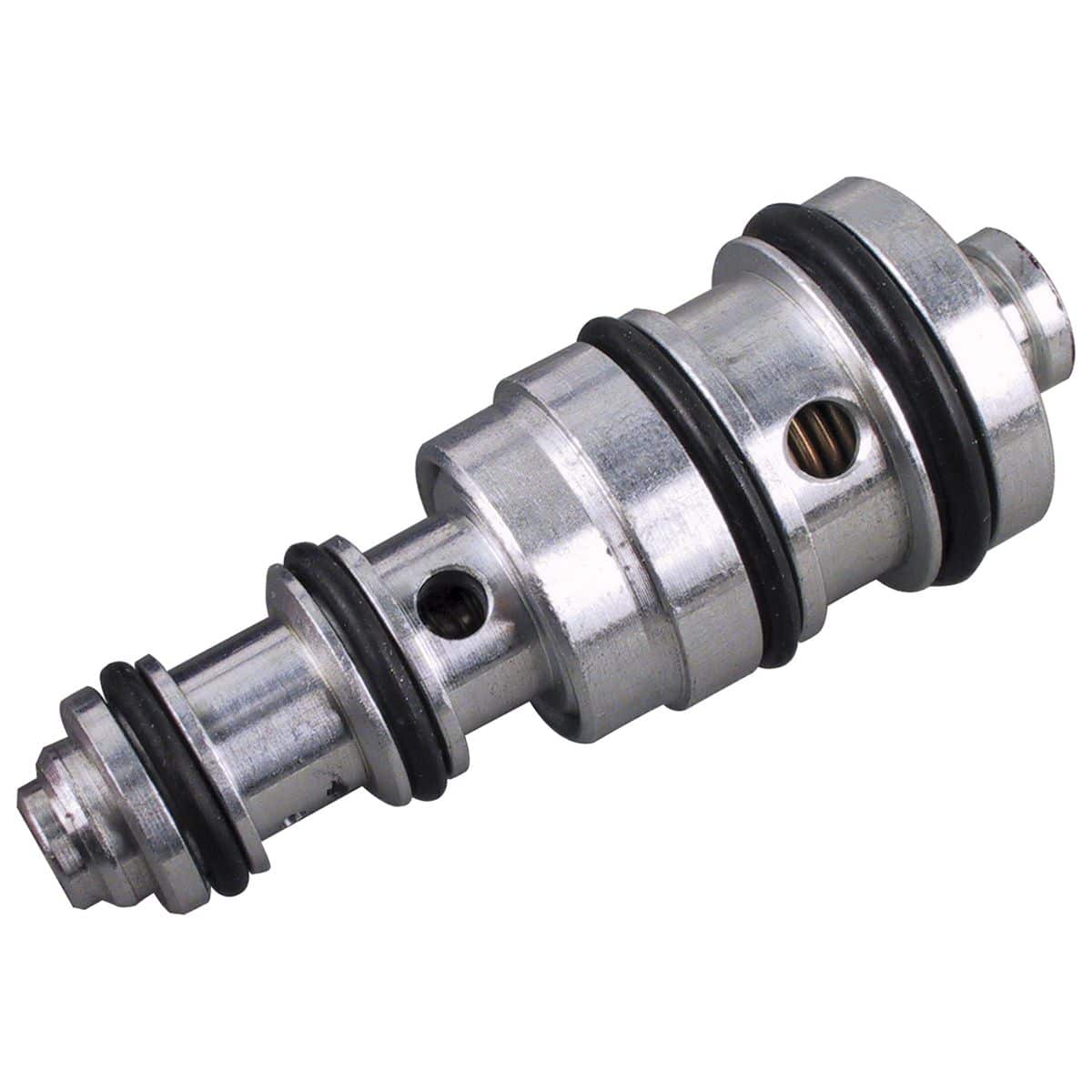
10 Nov AC Compressor Understanding the Electronic Control Valve
Understanding the AC Compressor Electronic Control Valve (ECV)
The Electronic Control Valve (ECV) plays a vital role in a car’s air conditioning system, primarily controlling the refrigerant flow. The ECV, nestled within the compressor, gets instructions from the Electronic Control Module (ECM).
The ECM gathers data from different sensors, including temperature sensors and compressor pressure sensors. With this data, it determines the ECV’s optimal position.
Table of Contents
- Functionality of the AC Compressor Electronic Control Valve
- Replacement of Electronic Control Valve: When and How?
- Diagnosing a Faulty AC Compressor Electronic Control Valve
- Cost Implication for Replacing the AC Compressor ECV
- Scenario of Non-separate ECVs
- Conclusion
Functionality of the AC Compressor Electronic Control Valve
When you turn on the AC, the ECM instructs the ECV to open, permitting the refrigerant into the compressor. Compressing the refrigerant heats it up. This high-pressure hot refrigerant then cools down as it circulates through the condenser.
Post cooling, the refrigerant passes through the ECV yet again and moves towards the evaporator. This step causes the refrigerant to expand and generate low-pressure, soaking up heat from the car’s interior. The refrigerant completes its cycle by flowing back to the compressor.
The ECM uses the ECV to control refrigerant flow for temperature regulation. Thus, if the car’s interior becomes too hot, the ECV allows an increased refrigerant flow.
Replacement of Electronic Control Valve: When and How?
Typically, you can replace a failing ECV in your car’s AC compressor. However, the feasibility depends on your vehicle’s make and model and the compressor deployed. In some compressors, the ECV merges with the compressor unit, making separate replacement impossible.
A technician with experience in AC repair should perform the replacement, which requires special tools. After replacing the ECV, the system needs to be purged, recharged, and tested before the vehicle resumes operation.
Depending on the vehicle’s age and condition, sometimes replacing the entire AC compressor unit may be more cost-effective than replacing only the ECV.
Diagnosing a Faulty AC Compressor Electronic Control Valve
Several methods can diagnose an ECV issue:
- Visual Inspection: Examine the ECV for damage, wear, or corroded electrical connections.
- System Pressure Test: Perform a pressure test to check refrigerant pressure levels.
- Electrical Test: Perform a test to check ECV continuity and resistance.
- Scanning Vehicle’s Computer: Use a diagnostic scan tool to check for trouble codes.
- Evacuating and Recharging the System: If the problem persists, consult a technician to evacuate and recharge the system.
Given the complexity of diagnosing an ECV, a skilled technician should handle the procedure.
Cost Implication for Replacing the AC Compressor ECV
Replacing an ECV costs between $200 to $600 on average, though prices depend on the car, compressor type, and local labor costs. Sometimes, you cannot buy ECVs separately, so you have to replace the entire compressor unit, which further increases costs.
Scenario of Non-separate ECVs
In some specific scenarios, when the ECV is not available for individual purchase, you may need to replace the entire compressor unit. This could place you on the higher end of the cost spectrum, easily around $1000 to $2500, dependent on your vehicle’s specifics. It automatically includes the cost of the ECV, but consider it as paying a high premium for a giant leap forward. Besides, sometimes, it might be more cost-effective, especially if the car’s age doesn’t justify the individual ECV replacement, or if other compressor parts have suffered significant wear and tear.
Conclusion
While repairing an AC system involves other components and potential issues. ECV replacement is a significant part of the repair, with a considerable cost implication. Always consider these variables before commencing any ECV-related repair, and remember to gather quotes and information from reliable specialists. Being mindful of parts used, whether Original Equipment Manufacturer (OEM) or aftermarket parts, will also affect the quality and ultimate cost.
WHY CHOOSE KEEPIN’ COOL AUTO AIR TO REGAS CAR AIRCON AT HOME?
Keepin’ Cool Auto Air stands out for:
- Timesaving: Keepin’ Cool Auto Air’s mobile AC regas services save you time, whether at your home or workplace.
- Quality: The use of high-quality parts ensures lasting performance in AC repair and servicing.
- Professionalism: ARCtick-certified technicians fulfill Australian Refrigeration Council regulations while treating your car professionally.
- Additional Services: Aside from car air conditioner regas-recharge, they offer other services like leak detection and compressor replacement.
- Excellent Customer Service: Keepin’ Cool Auto Air is renowned for being friendly, reliable, and customer-oriented.
- Value for Money: Reasonable pricing for top-notch services gives you the best return on your investment.
Don’t let the heat get the best of you and your journey. We encourage you to take action today and make a difference. Contact Keepin’ Cool Auto Air Conditioning Specialist for all your car’s AC needs. Our experienced and dedicated team is ready to repair, recharge, and rejuvenate your car’s air conditioning system. Call us now at 0410125095 to book an appointment. Experience top-quality service and make your ride blissfully cool again. Keepin’ Cool—where your comfort is our top priority!

